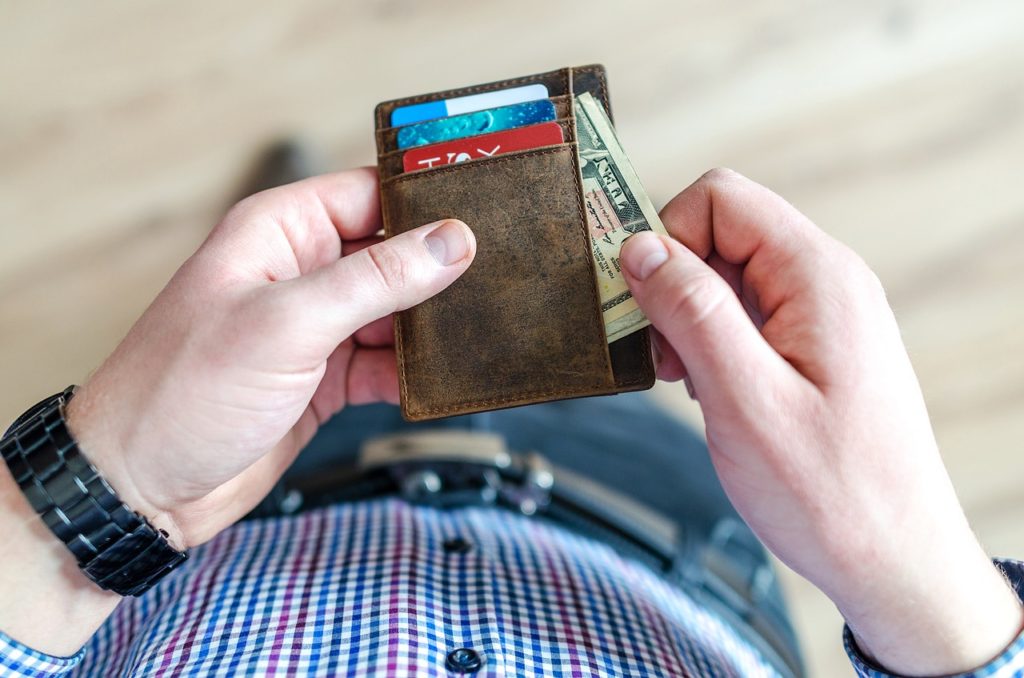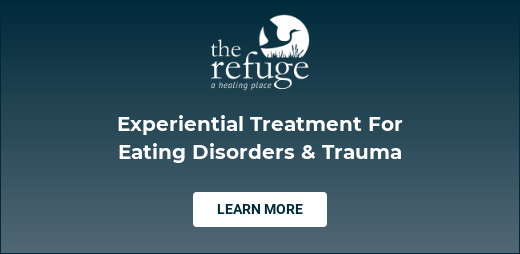
Sponsored By: The Refuge – A Healing Place
Addiction comes at a cost, and not just in the lives lost to this disease. A person’s battle with addiction can take a serious financial toll, and this can pose a greater challenge for those who are in the early stages of recovery.
People from all walks of life have been affected by addictions to various substances. In 2019, an estimated 14.5 million people age 12 and older struggled with alcohol use disorder. During the same time frame, about 10.1 million people abused opioids, 9.7 million people misused prescription painkillers, and 745,000 people used heroin [1, 2].
While it’s common to hear about the damage drugs and alcohol can do to a person’s health, what’s rarely discussed is the negative impact addiction can have on someone’s finances. In a survey of 149 friends and family members of people who were battling addiction, 82% said that their loved one’s finances suffered because of their struggles with addiction [3].
The result is often a loss of financial stability that can greatly reduce a person’s overall quality of life.
A Powerful Grip
Addiction can have a powerful grip on a person, driving them to do whatever it takes to get more drugs or alcohol — even if it puts them or someone they love at financial risk. And as the addiction becomes even more severe, the person may do things they normally wouldn’t to get the money they need to buy whatever substance they have been abusing.
Call The Refuge – A Healing Place for Help 844-943-5057
In the case of the survey respondents, they asked their loved ones to borrow money (65%), sold things online or at pawnshops (42%) to get cash, or even wiped out their savings or retirement accounts (48%) so that they could buy drugs or alcohol [3].
“I’d do anything [to get drugs]. I knew my finances were already bad. I didn’t care if it got worse,” Virgil, one of the survey respondents, said. “I would do anything I could: take credit cards, overdraw my balance, [or] take out a payday loan. I wrote checks to myself from an old checkbook and deposited [them] to my account so [that] I could take out money at an ATM.”
About half of the respondents said that their loved ones didn’t pay necessary bills like their utilities, rent, or student loans, opting to use the money to feed the addiction they were suffering from.
And the long-term costs of these actions can be devastating.
The Financial Toll of Addiction
On an emotional and social level, continually borrowing money from loved ones can put an intense strain on a person’s relationships. This can be incredibly painful and can sometimes lead people to sever ties with someone they care about deeply.
 Financially, a person may find that they are unable to support themselves once they are in recovery. Missing a mortgage payment, for example, can lower a person’s credit score. In fact, 39% of survey respondents said that their loved one’s credit score was negatively impacted by their struggles with addiction.
Financially, a person may find that they are unable to support themselves once they are in recovery. Missing a mortgage payment, for example, can lower a person’s credit score. In fact, 39% of survey respondents said that their loved one’s credit score was negatively impacted by their struggles with addiction.
But if someone misses several payments, they will likely face foreclosure. And when someone doesn’t pay their rent, they often incur late fees that can make it hard to pay other bills, and they may ultimately find themselves evicted [3, 4].
The financial toll of addiction can make it difficult for someone who is in recovery from an addiction to do everyday things like open a bank account, get a car loan, or rent an apartment. Without basic financial stability, remaining in recovery becomes that much more challenging.
Know the Warning Signs of the Financial Toll of Addiction
Addiction affects people from all walks of life, and the financial warning signs can show up in a lot of different ways. Knowing what to look out for is essential for getting someone timely support. These are just some of the financial warning signs that someone might be struggling with an addiction:
- Has trouble performing at work
- Stops going to work or loses their job
- Keeps asking to borrow money
- Has stolen money from friends or family
- Makes unusual withdrawals from bank accounts
- Takes out cash advances, payday loans, or credit cards
- Starts selling items online or at pawnshops
- Stops paying bills like their rent, mortgage, or utilities
Someone who displays these behaviors may not necessarily be suffering from an addiction. But if they are, it’s essential for them to get professional support as soon as possible. This will decrease their chances of experiencing any long-term negative effects of addiction.
Living with an addiction can be devastating — and not just to a person’s finances. But with the help of professionals, someone who is struggling with an addiction can minimize the long-term damage they may incur and get on a path to a brighter future.
References:
[1] National Institute on Alcohol Abuse and Alcoholism. (March 2022). Alcohol use in the United States. Retrieved May 11, 2022, from https://www.niaaa.nih.gov/publications/brochures-and-fact-sheets/alcohol-facts-and-statistics.
[2] U.S. Department of Health and Human Services. (2021, February 12). Opioid crisis statistics. Retrieved May 11, 2022, from https://www.hhs.gov/opioids/about-the-epidemic/opioid-crisis-statistics/index.html
[3] True Link Financial. (December 2019). Financial wellness in addiction and recovery: Hard truths and real consequences. Retrieved from http://documents.truelinkfinancial.com/True_Link-financial_wellness_in_addiction_and_recovery.pdf.
[4] Eisenberg, Richard. (2018, December 27). The wrenching financial costs of addiction. Forbes. Retrieved from https://www.forbes.com/sites/nextavenue/2018/12/27/the-wrenching-financial-costs-of-addiction/?sh=3fd8c57a4fbd.
[5] Kiser, D. (2022, March 3). Personal finance for people in recovery from substance use disorder. Money Geek. Retrieved from https://www.moneygeek.com/financial-planning/resources/guide-financial-recovery-after-addiction/.
About Our Sponsor:
 The Refuge, A Healing Place is a nationally respected provider of treatment for adults who have been struggling with substance use disorders, the effects of trauma, eating disorders, and mental health concerns. Located on 96 acres amid the beautiful Ocala National Forest in Ocklawaha, Florida, The Refuge’s campus is an ideal treatment environment for clients to step away from everyday stress to focus on their health. Treatment options at The Refuge, A Healing Place include residential care and a partial hospitalization program, along with medical detoxification, a relapse prevention program, and four-day intensive retreats that incorporate family and friends. For more information, please visit www.therefuge-ahealingplace.com.
The Refuge, A Healing Place is a nationally respected provider of treatment for adults who have been struggling with substance use disorders, the effects of trauma, eating disorders, and mental health concerns. Located on 96 acres amid the beautiful Ocala National Forest in Ocklawaha, Florida, The Refuge’s campus is an ideal treatment environment for clients to step away from everyday stress to focus on their health. Treatment options at The Refuge, A Healing Place include residential care and a partial hospitalization program, along with medical detoxification, a relapse prevention program, and four-day intensive retreats that incorporate family and friends. For more information, please visit www.therefuge-ahealingplace.com.
The opinions and views of our guest contributors are shared to provide a broad perspective of addictions. These are not necessarily the views of Addiction Hope, but an effort to offer a discussion of various issues by different concerned individuals.
We at Addiction Hope understand that addictions result from multiple physical, emotional, environmental, and genetic factors. If you or a loved one are suffering from an addiction, please know that there is hope for you, and seek immediate professional help.
Published on May 26, 2022
Reviewed by Jacquelyn Ekern, MS, LPC on May 26, 2022
Published on AddictionHope.com

